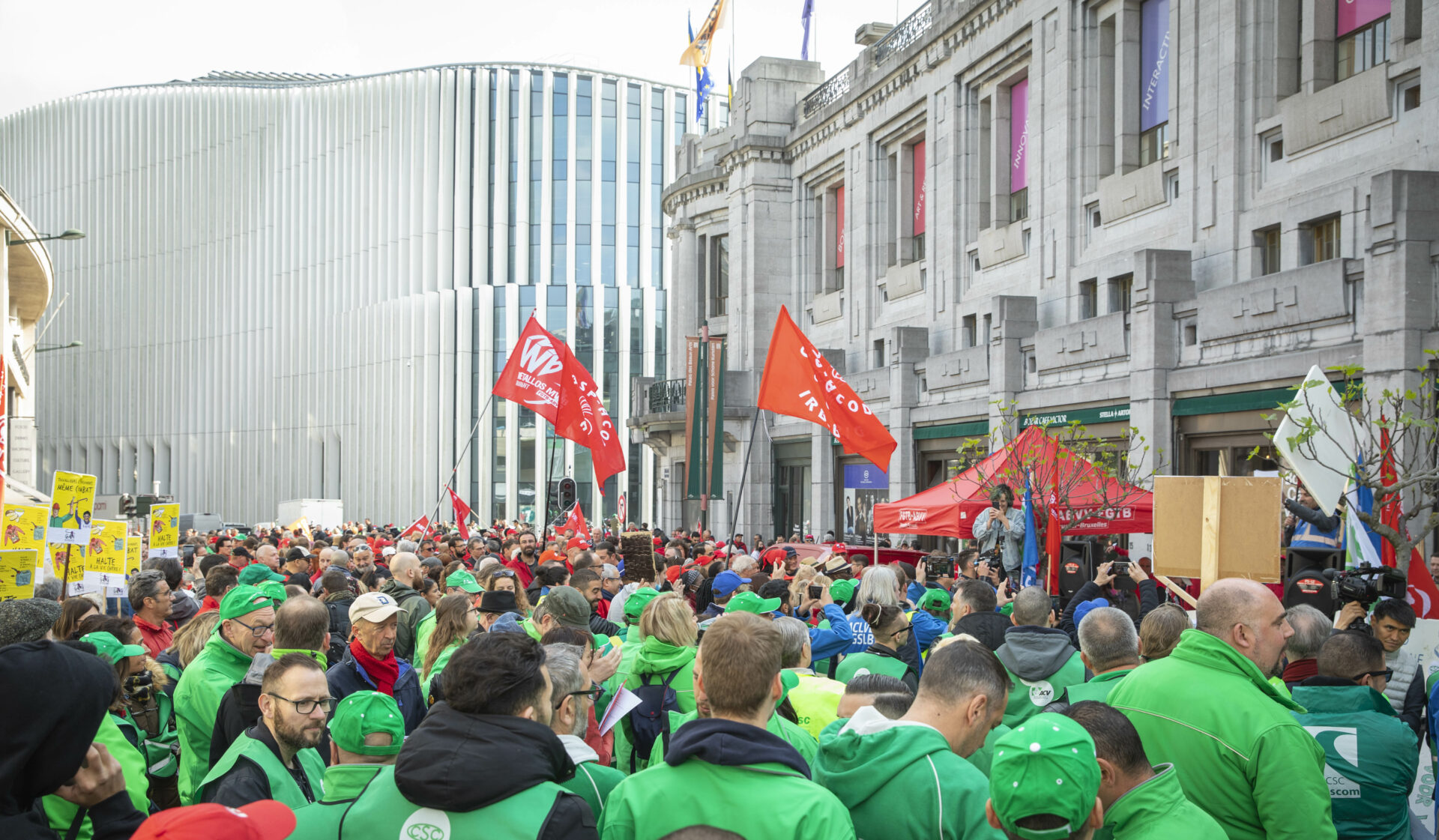The sky-high gas and electricity prices are having a direct impact on inflation in countries across the EU, however, the automatic wage indexation has resulted in the purchasing power in Belgium being better protected than in neighbouring countries.
Skyrocketing energy, food and services prices continue to push up the inflation rate in Belgium, which is now nearing 10%. This is rekindling the debate on purchasing power. However, while households (especially with a low income) will have to spend an increasing part of their income on their energy bills, they are better protected than in other countries.
"The sky-high inflation certainly temporarily weighs on purchasing power," Geert Langenus, an economist at the National Bank, told De Tijd. This is resulting in the gap between low-income families and the average family widening.
However, while real wages are falling this year, Belgium is one of the few countries in the EU where wages are indexed to inflation, meaning they are automatically adjusted to keep pace with the rising cost of living, resulting in the purchasing power not declining to the same extent as in other countries.
Wages continue to rise
In its latest forecast, the Planning Bureau predicted an overshoot of the pivot index in August, which would see wages rise again by 2% in October, while another overshoot of the pivot index in December, would cause wages in our sector to rise by 2% again in February 2023.
According to KBC, the purchasing power of households could fall by 0.1% this year. In comparison, the Dutch Central Planning Office noted on Friday that the purchasing power of the median household in The Netherlands will decline by 6.8% in 2022, which is much higher than the EU average.
Related News
- From finance to energy: The sectors profiting from high inflation
- Carrefour France freezes price hikes on basic products, Belgium to follow suit
For the median family in Germany, the purchasing power is expected to drop by 4.2%, according to Carsten Brzeski, head of macroeconomics at ING, while French families will be around 0.9% poorer (this is lower because France froze its gas prices and limited the rise on electricity prices).
Good news for employees, bad news for companies
While the indexation better protects households, it is bad news for companies in Belgium, as it leads to a more rapid increase in labour cost, which lowers their competitiveness.

Unions went on strike in recent months, calling on the government to protect wage indexation. Credit: Belga / Paul Henri Verlooy
Employers already expressed deep concerns about the automatic wage indexation, saying it has resulted in fewer investments and recruitments, with Flemish employers’ organisation Voka saying the situation is becoming untenable for companies. Some are asking to postpone the indexation during the crisis.
However, unions have stressed that wage indexation is now more vital than ever. In previous months, they took to the streets to protect its existence, and as negotiations will start for the margin of wage increases, more social unrest may be possible in the coming weeks.

